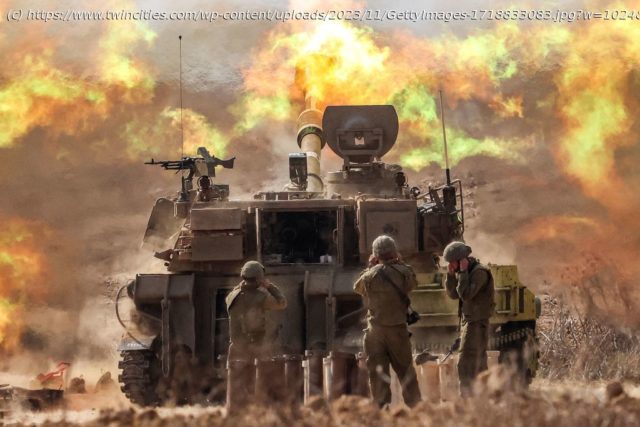The breakthrough between Israel and Hamas that will see dozens of hostages and prisoners released from both sides — and more aid flow into Gaza — almost never happened.
By Jordan Fabian, Fiona MacDonald and Jennifer Jacobs, Bloomberg News
The breakthrough between Israel and Hamas that will see dozens of hostages and prisoners released from both sides — and more aid flow into Gaza — almost never happened.
Talks over an agreement to free some of the captives held in Gaza began soon after Hamas’s forces stormed into Israel last month and took an estimated 240 hostages back with them, according to U.S. and Qatari officials who briefed reporters as the latest deal was announced.
But it wasn’t clear the negotiations in Doha would succeed.
Fury over the damage wrought by Hamas’s Oct. 7 attack that left 1,200 dead, and an Israeli response that authorities in the Hamas-run Gaza Strip say has killed thousands since, hung over the negotiators. The hurdles included demands to provide proof-of-life details for the hostages and questions over the practicality of Israeli forces remaining in Gaza during a pause in battle.
“There were some very difficult moments, the agreement was nearly sabotaged because of events on the ground,” said Majed Al-Ansari, a spokesperson for Qatar’s ministry of foreign affairs.
As Israel’s closest ally, the U.S. was under pressure to support its historic partner — and find a way to secure the release of nearly a dozen Americans taken in the Hamas offensive. President Joe Biden flew to Israel less than two weeks after the attack, publicly defending Israel’s right to self-defense but privately pushing for a deal to get hostages freed. He also warily eyed rising frustration in his party over Israel’s counterattacks against Hamas in the densely populated Gaza Strip.
For the Biden team, a sliver of hope emerged when Hamas — a designated terrorist group by the U.S. and European Union — freed an American mother and her daughter on Oct. 20 and Qatar’s leader, Sheikh Tamim bin Hamad Al Thani, got directly involved in the talks.
Hamas’s release of Judith Raanan and her daughter, Natalie, helped give White House officials confidence that negotiations through Doha could yield results, according to a U.S. official who briefed reporters late Tuesday. The Raanans had been taken from Israel’s Kibbutz Nahal Oz, the site of one of the bloodiest massacres in the Hamas attack.
That was the first key success of a working group put together earlier by the Qataris, working with Egypt and a pair of officials that U.S. National Security Advisor Jake Sullivan directed to get involved: Brett McGurk — a veteran diplomat who served as the top American envoy to the global coalition to defeat Islamic State — and Josh Geltzer.






